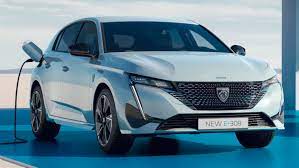
New tests show Plug-in hybrids pollute more than claimed
Plug-in hybrid cars are still presented as a climate solution, but tests on the newest generation of PHEVs indicate they pollute significantly more than claimed on city and commuter routes. Two years ago, Transport & Environment (T&E) found the technology, which contains an electric battery and a combustion engine, polluted significantly more than advertised on longer routes. It says the new tests confirm beyond doubt that lawmakers should base taxes for PHEVs on their actual pollution and stop subsidising their sale.

Three recent PHEV models, a BMW 3 Series, Peugeot 308 and Renault Megane, emitted more CO2 than advertised when tested on the road even when starting with a full battery. The BMW polluted three times its official rating when driven on a typical commuter route, according to the tests by Graz University of Technology, commissioned by T&E. The Peugeot 308 and Renault Megane plug-in hybrids performed better but still polluted 20% and 70% more than claimed, respectively, despite the relatively short round-trip distance covered (55km). In city driving, the Peugeot had just over half (53%) of the advertised electric range on a single charge while the BMW had only 74%. Only the Renault had the electric range claimed. However, with just 50km on a single charge and no fast charging, the Renault’s zero-emissions use on commuter routes across European cities will remain limited.
Information Source: Read More “
Energy Monitors , Electric Power , Natural Gas , Oil , Climate , Renewable , Wind , Transition , LPG , Solar , Electric , Biomass , Sustainability , Oil Price , Electric Vehicles,


